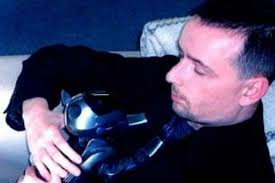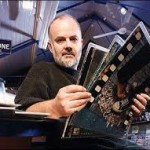The untimely death of LFO‘s Mark Bell in his early 40s last week has already provoked acres of column inches. There have been lists of his finest musical moments, tributes from high profile collaborators like Bjork, and no end of compliments paid for the crucial role he played in electronic music.
The fact that nowhere have we seen anyone talk about Mark Bell the person, as opposed to the musical legend, is one that would probably have amused him. In stark contrast to his productions – always passionate and powerful, often epic and ambitious – Bell kept a resolutely low profile. The idea that his music would do the talking was not a line he trotted out on interviews, more the way he lived his life.
It’s fitting, certainly, that spontaneously looking back on the handful of times I came across Bell I spent the entire weekend unaware of his legendary identity. A rookie dance music reporter, in the early 90s I’d been sent to a small Belgian town to report on a get together of the roster of techno label R&S. I’d been informed that LFO were due to attend, but amid the big personalities on show, from Detroit innovator Juan Atkins and trance wizard CJ Bolland to the ever larger than life Mixmaster Morris, it was only on my return I remembered that the UK’s first techno superstars, LFO, had been absent.
Only they hadn’t. Mark Bell and his co-conspirator Gez Varley had been hanging out all along, drinking, larking about and eventually riding their bicycles into a canal not as a Keith Moon-style stunt but out of sheer drunkenness. It’s just that, probably out of politeness to their hosts, they announced themselves as Speedjack (the name they were signed to R&S under) rather than using their already legendary moniker.
Bell and Varley were a classic double act – Varley the extrovert, the joker, Bell the quieter, more self-depreciating of the pair. While it’s fair to say that Mark Bell kept a low profile as a personality, he was actually highly sociable, no recluse for sure. You’d regularly see him among a gang of musicians and the extended entourage of Warp Records, usually supporting one of his labelmatea at a London show. He was always ready with a warm smile and friendly, if softly spoken, words. He was always the definition of down to earth, happily discussing the evening’s music but never ever demanding the massive respect and deference that his status as a true innovator and pioneer deserved.
Techno is accepted now, but throughout the 90s it was still highly controversial. The thing that separated it from rock ‘n’ roll utterly, at the time, was that its heroes were happy lurking in the shadows rather than appearing in the media and on TV. Mark Bell’s personality epitomised that reluctance to shove your talents in the face of the public. His legacy is more than two decades of beautiful, brutal, undiluted and original music that has already inspired several generations of producers and DJs, and doubtless will go on doing just that. And that, ultimately, will last longer than any magazine cover or Top of The Pops appearance.




